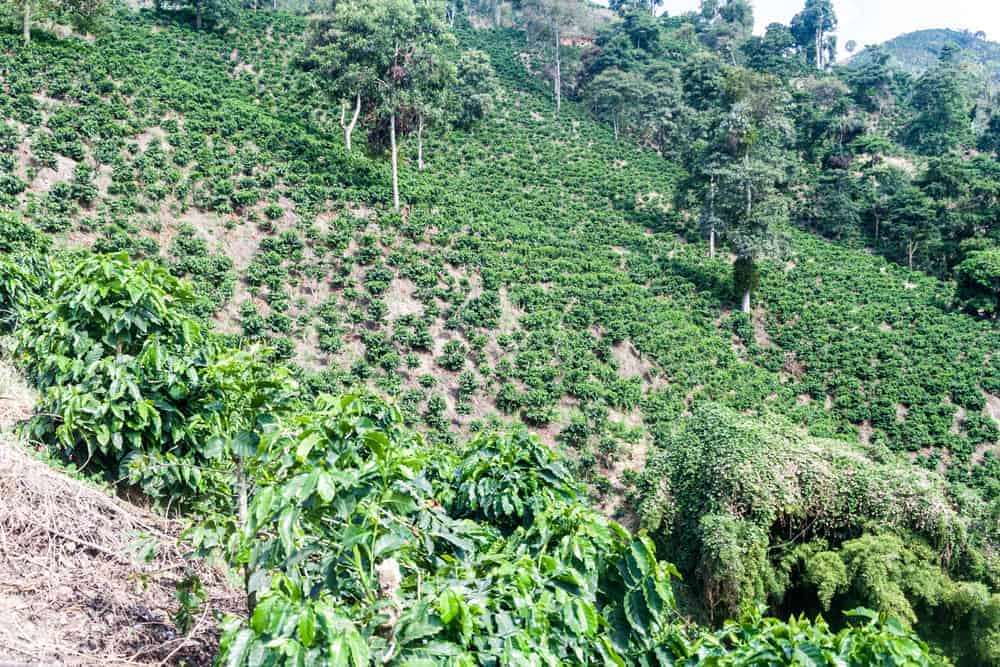Blog
Coffee Industry Leaders Push for Coffee Transparency with “The Pledge”
The coffee industry is all about harsh realities and pretty pictures. Coffee roasters and shops around the globe rely on coffee farmers to produce the beans that coffee lovers thrive on. However, producers often reap minimal profits from everything that gets generated along the coffee industry’s value chain.
More and more leaders in the coffee industry recognize that one of the best ways to ensure the production of superior coffee products is to increase sustainability. Ultimately, this must begin with allowing the producers to earn higher income for what they do. Unless they earn good money, these producers end up cutting corners or giving up on the process entirely.
This is where “The Pledge” comes in and it emphasizes transparency. Although transparency isn’t a guarantee that trading relations become meaningful, it can ensure a good income for coffee producers. This is because transparency makes communication towards consumers more honest.
Read on to learn more about this movement…
Breaking Down “The Pledge”
To understand “The Pledge,” it’s important to learn more about it starting with where it originated…
Origin
The idea began in the year 2018 during a transparent trade colloquium held in Hamburg. From there, the idea started evolving. The people who conceptualized “The Pledge” were part of the coffee supply chain.
They felt that transparency must primarily mean honesty in terms of coffee negotiations pricing. To do this, communication about how much people pay for their coffee must remain open.
When companies sign “The Pledge,” this means that they agree to the idea of sharing a fixed set of variables when they report on green coffee purchases. The movement aims to create a common transparency standard which applies throughout the coffee industry.
Disclosing more information like the name of the producing organization, the cup quality, and the lot size means adding context to the transparency reports. This, in turn, makes the reports comparable and genuinely transparent.
Goals
Basically, the goals of this movement point towards creating a common standard for transparency reporting in terms of green coffee purchasing. The goals include:
- Giving participants in the supply chain of coffee a chance to join the transparency movement.
- Help the signatory companies and individuals set an example for the whole coffee industry.
- Prevent the co-optation of non-committed actors by making it a requirement for the participants to perform transparency reporting.
Methods
To achieve all of these goals, there are certain steps the participants must take. These include:
- Creating transparency data that’s easy to access and publicly available.
- Requiring companies to state the producer or producing organization where they purchased their coffee from along with the FOB price they paid for the coffee.
- Requiring companies to state the quality of the purchased coffee using an SCA score, the volume of the coffee they purchased, and how long they have been in business with the producer or the producing organization.
- Requiring companies to state the percentage of the transparent coffees in terms of the total coffee volume they’ve sold in the year.
All the companies which sign the pledge must publish all of the required information about the coffees they sell. If anyone questions this published information, the companies must agree to share randomly selected contracts with the other participants of “The Pledge” for the purpose of information verification.
Who’s Involved
This movement keeps growing as more and more leaders in the coffee industry have agreed to sign up. Some of the bigger coffee roasters and importers involved in this movement include:
- The Coffee Collective
- Counter Culture Coffee
- Quijote Kaffee
- Seattle Coffee Works
- Traidcraft
- Flying Roasters
- Cross Coffee
- Onyx Coffee Lab
- Coop Coffees
- Kaffee Macher
These are just a few of the coffee industry leaders which are a part of the movement. Here are some excerpts of quotes shared by notable people in these companies:
“The Pledge makes a commitment between roasteries across the globe with exact criteria for transparency that we all sign up to oblige.”
– Peter Dupont, The Coffee Collective
“We’re excited to work with other companies who are committed to transparency in order to raise the issue’s visibility and to signal that it’s cooperation, not competition, that’s needed to move forward.”
– Meredith Taylor, Counter Culture Coffee
“To truly build sustainable relationships along the coffee value chain, we need transparency. Fortunately, lots of folks have realized this and we are now able to build a transparency movement.”
– Andreas “Pingo” Felsen, Quijote Kaffee
“This kind of work can only help empower the farmers and will be critical for our long term ability to buy great coffee from fairly compensated farmers.”
– Sebastian Simsch, Seattle Coffee Works
“We are passionate about economic justice and believe that transparency is key in achieving this.”
– Robin Roth, Traidcraft
Potential Impact
More and more progressive companies in the coffee industry have signed “The Pledge” while committing to transparency and the creation of transparent reports which are both public and easy to access. The main impact this will have on the industry is it will encourage other companies to sign up to become more transparent in terms of their purchasing records.
The most important goal of the movement is transparency. If more and more roasters all around the world sign up for “The Pledge,” and commit to its goals, it becomes more difficult to “cheat” the consumers. This, in turn, helps build trust between the roasters, the consumers, and everyone else in between.
This transparency will also lead to more fair pricing throughout the supply chain of the coffee industry. Although “honest mistakes” may always happen, this movement prevents companies from lying on their reports. That is unless the companies want to lose their reputation over something as devious as falsification.
For those companies which haven’t joined the movement yet, they can think of transparency reporting as a kind of natural evolution. Unfortunately, this definition sometimes suffers from unsubstantiated marketing claims.
When it comes to the coffee buying business – along with the business of marketing coffee purchasing practices – there’s quite a lot of wiggle room in terms of definitions. Because of this, some companies get away with suspect claims, especially in gray areas. But when an international collection of coffee companies band together to support transparency reporting, this helps eliminate those issues.





